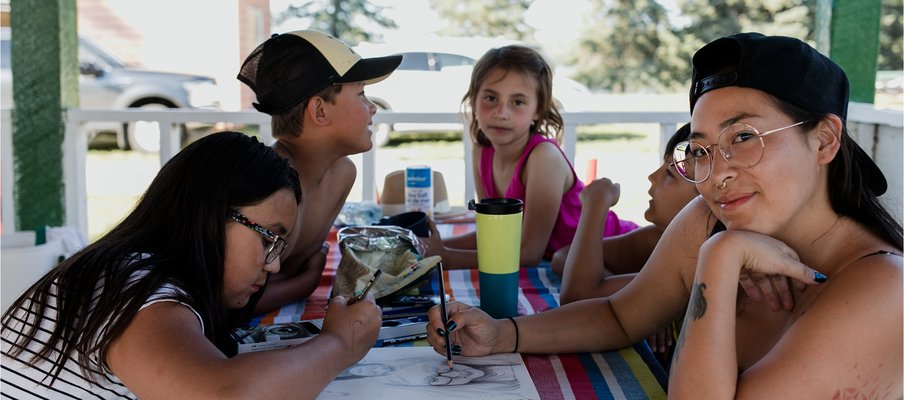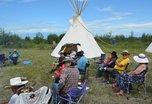Creating Platforms for Revitalization

Related Programs

Belinda Daniels, founder and co-director of the nehiyawak Language Experience, believes reclamation of traditional languages is possible. If she didn't, she wouldn't have dedicated nearly two decades of her life to language revitalization.
Daniels organized her first Cree immersion camp on the Sturgeon Lake First Nation sixteen years ago. It was small, but has gained popularity ever since. So much so, that last year they began offering week-long mini language workshops.
“We realized how hungry the community was to learn Cree. Our summer language camps would fill immediately, like within the hour and then there would be a long waiting list of people wanting to come to our summer camps and then we thought, ‘Maybe we create more and call them mini language workshops,’ ” says Daniels.
In addition to that work, Daniels and her team offer Thursday night conversational Cree classes and professional development opportunities for Cree language instructors. The language work has branched off into research opportunities and a book is in the works. “We have been growing in all kinds of ways,” says Daniels.
As someone who is passionate about revitalizing and reclaiming the Cree language, she finds it encouraging that others are equally interested. Daniels understands that desire because it's something she felt herself. Although she lived with her grandparents and grew up hearing them converse in Cree, she herself was not fluent. Daniels knew a few words, but not enough to understand what her grandparents were saying. As she got older, the interest in Cree never faded instead it grew. She received her education degree and during one of her first teaching jobs she was asked to teach Cree. Daniels began taking language classes to help her teach Cree and it ignited her desire to learn as much as she could. She left teaching to further her education and the first Cree Language camp was part of her Master’s thesis.
“I created the Cree language camps to reclaim that missing piece of myself,” says Daniels, adding that her passion to learn has not stopped because the more she learns the more she realizes how much work still needs to be done when it comes to language preservation. Daniels is now proficient in the Cree language and is able to converse in Cree, but still does not consider herself fluent. She believes anyone can learn Cree if they are committed to learning, but knows how difficult it can be to access resources and teachers.
“Language is identity,” she says. “To practice speaking language out on the land (where) language and land meet, it’s like my whole being lights up.”
Every time a new learner thanks her, Daniels knows she is doing what she was meant to do and is grateful to organizations like SaskCulture for helping her make Cree accessible to others.
Information on the summer immersion camps, workshops and professional development opportunities can be found online at nehiyawak.org.
The project received funding from SaskCulture’s Aboriginal Arts and Culture Leadership Grant.




